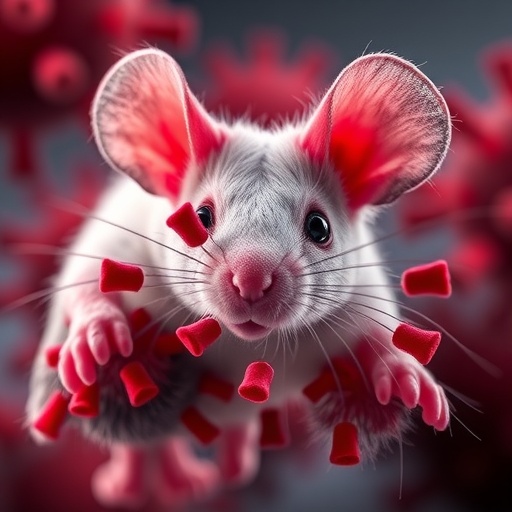In a groundbreaking study led by researchers A. Ryan, S. Arthur, and L. Lieu, the impact of a novel intervention aimed at enhancing social connectivity in individuals affected by eating disorders has come to light. Set to be published in the upcoming edition of the Journal of Eating Disorders, this research explores the feasibility and acceptability of this new intervention that takes a holistic approach to mental health. This innovative study sheds light on an area that is often overlooked, demonstrating how social interactions can play a crucial role in the recovery process for those with eating disorders.
Eating disorders are complex mental health conditions that primarily afflict individuals, often leading to severe psychological distress and potential physiological harm. Previous studies have extensively documented the detrimental effects that these disorders can incur on an individual’s physical health, but the social implications have received comparatively less attention. This new research addresses that parity and explores how social connections and support systems can facilitate the recovery process, making a case for a more integrated approach to treatment.
The researchers began their investigation by outlining the parameters of the social domain intervention. This approach is premised on the understanding that many individuals with eating disorders experience profound feelings of isolation and disconnection from friends, family, and society. The study posits that building supportive social networks could serve as a crucial element in the nourishment of not only psychological healing but also physical recovery from the debilitating symptoms associated with these disorders.
In the initial phases of the study, the team conducted qualitative interviews with a diverse sample of individuals who had previously participated in traditional eating disorder treatments. Through these conversations, they sought to uncover the dynamics of social engagement in the recovery journeys of these individuals. Not surprisingly, many of the participants expressed a desire for more inclusive and supportive social environments to facilitate their healing. The narratives highlighted that while clinical interventions are essential, the emotional support derived from peers can often make a substantial difference in one’s recovery trajectory.
Having identified this gap, the researchers crafted an intervention designed to cultivate social connections among participants. The program featured group therapy sessions, peer support networks, and community engagement activities that encouraged participants to share their experiences in a safe, understanding environment. Initial feedback from participants indicated that this social approach not only enhanced their sense of belonging but also provided a platform for mutual encouragement, which is often lacking in individual treatments.
As part of the feasibility study, the researchers implemented various metrics to gauge the acceptability of the intervention among participants. The feedback was overwhelmingly positive, with many individuals expressing that they felt a renewed sense of hope and motivation. The results suggest that these social domain interventions could complement existing medical and psychological treatments, providing a more comprehensive recovery framework that addresses both individual and communal aspects of healing.
An interesting aspect of the study was the incorporation of technology, which allowed participants to connect beyond the physical meeting spaces. An online platform served as an extension of the program, providing resources for ongoing support and fostering connections among participants at any time. This digital component not only reinforced the social dynamic initiated during the in-person sessions but also expanded the reach of the intervention, allowing for a broader demographic to engage and benefit from the program.
The importance of socialization in recovery from eating disorders cannot be overstated. Research has long established that isolation exacerbates the symptoms of these conditions, creating a cycle that is difficult to break. However, through this innovative intervention, the research team demonstrated that fostering social connections could effectively disrupt that cycle, allowing individuals to regain agency over their lives and their health.
As the study prepares for publication, the researchers are optimistic about the potential implications of their findings. They believe that their work could pave the way for the integration of social domain interventions into standard treatment protocols for eating disorders. This could not only bolster the effectiveness of existing treatments but also make recovery more accessible for individuals who may have previously felt marginalized or disconnected.
Diabetes and heart disease often receive focused attention for their associated risk factors, but mental health disorders like eating disorders deserve equal consideration. The primary message emerging from this study is that mental health treatment can transcend clinical environments, thriving within the realms of interpersonal relationships and community support. As more professionals in the field begin to recognize this truth, the hope is that collective action will lead to a shift in treatment paradigms across the board.
Ultimately, the findings proposed by Ryan, Arthur, and Lieu are a call to action. They underscore the importance of integrating social factors into the conversation around eating disorders. By doing so, clinicians and mental health advocates can provide a multi-faceted treatment approach that not only focuses on the individual but also considers the broader social context in which these disorders manifest.
As the landscape of mental health treatment continues to evolve, this research stands as a testament to the significance of fostering community connections in the journey toward recovery. The potential for social domain interventions to transform the treatment of eating disorders is not only exciting but essential, promising a holistic approach to an issue that has long been misunderstood.
In conclusion, the intervention described by the authors serves not just as a method of treatment, but as a beacon of hope for countless individuals struggling with eating disorders. By advocating for a future where mental health care is deeply interwoven with social support, this study has the potential to change how we perceive and treat these complex conditions in society.
As awareness of the role of social connectivity in mental health continues to grow, further research and exploration into such interventions will likely be on the horizon. This pioneering work by Ryan et al. lays the groundwork for innovative therapies that emphasize the necessity of social bonds in the healing process, suggesting a promising pathway towards comprehensive recovery strategies for eating disorders.
Subject of Research: Social Domain Interventions for Eating Disorders
Article Title: Learning to connect: feasibility, acceptability and experiences in the social domain intervention for eating disorders.
Article References:
Ryan, A., Arthur, S., Lieu, L. et al. Learning to connect: feasibility, acceptability and experiences in the social domain intervention for eating disorders.
J Eat Disord (2025). https://doi.org/10.1186/s40337-025-01470-0
Image Credits: AI Generated
DOI: 10.1186/s40337-025-01470-0
Keywords: Eating disorders, social interventions, mental health, community support, recovery.
Tags: acceptability of mental health interventionsenhancing social connectivity in recoveryfeasibility of social interventionsgroundbreaking research in eating disordersholistic approach to mental healthimportance of social interactions in recoveryinnovative treatment for eating disordersintegrated approach to eating disorder treatmentpsychological distress and eating disorderssocial domain interventions for eating disorderssocial implications of eating disorderssupport systems for eating disorder recovery





